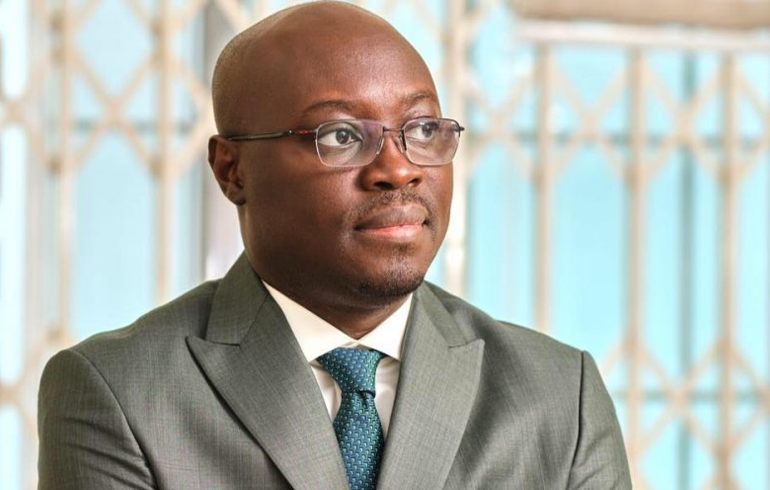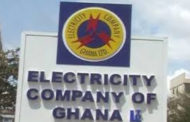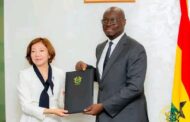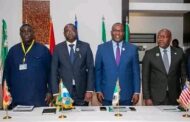As Ghana prepares for its 2025 Budget and Economic Policy presentation on March 11, 2025, the Institute of Economic Affairs (IEA) has outlined critical expectations for the new NDC government’s fiscal plan.
This comes amid an ongoing economic crisis, characterized by soaring inflation, currency instability, and a high cost of living. With the country also grappling with high debt levels, subdued growth, and escalating unemployment, the 2025 budget is expected to focus on achieving fiscal consolidation and paving the way for sustainable recovery.
The budget will be Ghana’s first under the new administration, and its formulation is being done under the framework of the IMF’s Extended Credit Facility (ECF) program, which runs from 2023 to 2026. The IEA expects the budget to align with the ECF’s objectives, focusing on strong fiscal consolidation to restore macroeconomic stability and debt sustainability.
Key Areas of Focus:
- Revenue Mobilisation and Tax Reforms
Ghana’s tax revenue-to-GDP ratio, currently around 13-14%, is considerably lower than the average of 20-25% for middle-income countries. This revenue shortfall is driven by a narrow tax base, widespread tax evasion, and inefficient collection systems. The IEA supports the NDC’s commitment to abolish taxes like the E-Levy, Covid Levy, and Emissions Tax, acknowledging the need for simpler, more effective tax structures. While the Betting Tax may be reduced from 10% to 5%, the IEA argues it should not be eliminated entirely due to its revenue-raising potential. To offset potential revenue losses from tax cuts, the IEA recommends plugging tax loopholes, broadening the tax base through digitisation, and enhancing tax administration using modern technology. Furthermore, it suggests exploring new tax initiatives, such as taxing e-commerce and the excess profits of extractive companies, telecommunications firms, and banks. - Expenditure Management and Capital Investment
The IEA highlights the importance of expenditure rationalisation in achieving fiscal consolidation. While there is room to cut wasteful spending, the IEA warns against slashing critical sectors like health, education, and infrastructure. Capital expenditure (CAPEX), which is currently around 3-4% of GDP, needs to be increased to at least 10% of GDP over the medium term to foster long-term growth and job creation. The creation of an Independent Value-for-Money Department (IVMD), as proposed by President Mahama, could help reduce inefficiencies and save up to 3-4% of GDP. These savings could be reinvested into essential development projects, further strengthening Ghana’s fiscal position. - Debt Management and Sustainability
Ghana has made progress in reducing its debt-to-GDP ratio, from over 100% in 2022 to about 72% by late 2024, following successful domestic debt restructuring. However, continued fiscal consolidation and effective debt management are crucial to ensuring the country remains on a sustainable debt path. This will require disciplined revenue mobilisation and expenditure cuts, as well as the maintenance of strong international and domestic debt management practices. - Energy Sector Reforms
The IEA stresses the need for a comprehensive strategy to address the energy sector’s financial challenges, particularly its legacy debts. The 2025 budget should lay out a clear plan to ring-fence these debts and gradually reduce them, while focusing on improving the efficiency of state-owned entities like the Electricity Company of Ghana (ECG). Reforming ECG’s operations, including outsourcing certain functions like billing to private companies, is crucial for improving its financial sustainability. Furthermore, the IEA advocates for a more diverse energy mix, with increased investment in renewable energy sources such as solar, wind, and hydro. This would ensure Ghana’s energy needs are met sustainably and at an affordable cost. - Revitalising the Cocoa Sector
Ghana’s cocoa sector, once the backbone of the economy, has faced a dramatic decline in production, from 1.05 million tonnes in 2020/21 to just 580,000 tonnes in 2023/24. The IEA calls for the restructuring of Cocobod to reduce operational inefficiencies and ensure that cocoa produced by farmers is fully purchased and timely paid for. The IEA also suggests providing competitive producer prices to incentivise production and combat smuggling. Strengthening local processing capacities and reducing illegal mining activities in cocoa-producing areas are key to revitalising the sector and boosting foreign exchange earnings. - Monetary and Financial Sector Policy
Inflation in Ghana remains high, hovering at around 23.1% in February 2025, far exceeding the central bank’s target range of 8±2%. The IEA calls for a more comprehensive approach to managing inflation, with the Bank of Ghana working closely with the government to address rising food and energy prices and the depreciation of the cedi. A strong export expansion strategy, alongside import substitution and enhanced foreign exchange reserves, will be essential to stabilising the currency. The IEA also highlights the need for further financial sector reforms, including recapitalising local banks and improving Ghanaian ownership in the banking sector. Strengthening financial intermediation and ensuring the effective implementation of the Financial Sector Support Facility (FSSF) will help rebuild a resilient financial system.
The Road Ahead:
The 2025 budget offers Ghana an opportunity to confront its economic challenges head-on and lay the groundwork for long-term growth and stability. The IEA’s outlined expectations for revenue management, debt reduction, and strategic investments in key sectors will be essential in steering the country out of its current economic crisis.
The government’s approach to tax reforms, expenditure cuts, and sectoral investments will have a direct impact on economic recovery, with the potential to restore Ghana’s fiscal health and position it for sustainable development. As the government prepares to unveil its budget, the IEA’s recommendations offer a roadmap for the future, one that balances fiscal responsibility with strategic investments to unlock Ghana’s growth potential.
Source:Mybrytfmonline.com/Gumedzo Isaac Acheampong




















































